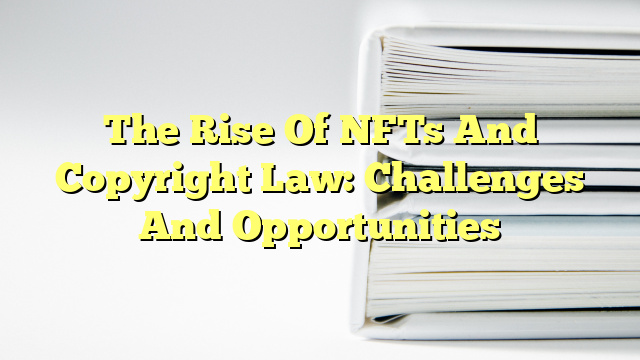Table of Contents
Challenges
The rise of non-fungible tokens (NFTs) has created an entirely new industry in the digital space. But NFTs also pose unique challenges for copyright law, as they are virtual, intangible assets that are not always easy to assign ownership rights to. In particular, the question of who holds the copyright over NFTs, such as digital art or music, is a contentious issue. It is also a complex one, as the law does not always clearly differentiate between ownership and licensing of works, making it difficult to assign rights.
Another challenge comes from the fact that NFTs are traded on open, unregulated markets, which can lead to fraud, scams and other unethical practices. This can put NFT owners at risk of losing their investments if they are not careful. It is also difficult to enforce existing copyright laws on these markets, making it harder to protect intellectual property rights.
Copyright Theft
NFTs do have a problem with copyright theft, as there is no clear way to determine who holds the rights to a particular digital asset. This makes it difficult to prevent unauthorized use of copyrighted works, as anyone can create and trade NFTs without needing the permission of the creator. As a result, it is not uncommon for digital artwork, music and other creative works to be stolen and resold on the NFT market.
Opportunities
Despite the challenges, there are many opportunities in NFTs. One of the biggest is the ability to monetize digital assets and collect royalties. NFTs have opened up new ways to monetize digital artwork, music and other creative works, allowing the creators to collect a share of the profits from sales. Additionally, NFTs provide a market for digital collectors to buy, sell and trade rare and unique digital assets.
The rise of NFTs has also created opportunities for artists, musicians and other creators to get their work noticed and build their fan base. NFTs can be used to promote a creator’s work and give them access to a larger audience, allowing them to reach new markets and expand their fan base.
Finally, NFTs offer a way to invest in digital assets. With the increasing popularity of NFTs, many investors have begun to take advantage of the potential returns that can be earned from trading them. This has led to an influx of capital into the NFT space, creating a burgeoning new industry with plenty of opportunities for growth.


NFTs offer both unique challenges and opportunities for copyright law.